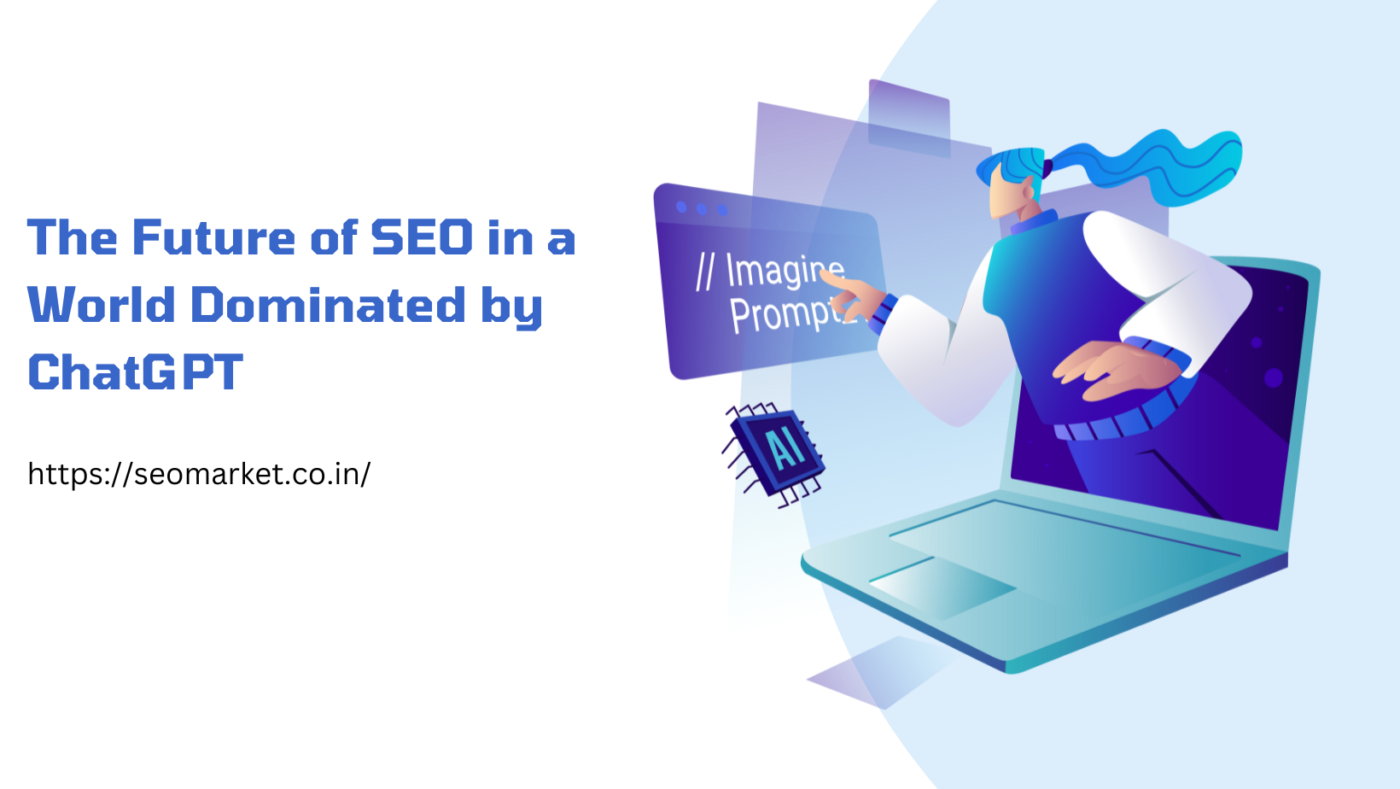Artificial Intelligence
The Future of SEO in a World Dominated by ChatGPT
The Future of SEO in a World Dominated by ChatGPT
The world of search engine optimization (SEO) is on the brink of a revolution. With the advent of advanced AI models like ChatGPT, there’s a looming question: What happens to SEO if ChatGPT kills search engines? This blog delves into this potential future, exploring the transformative impact on SEO, the new strategies that might emerge, and the broader implications for digital marketing.
Introduction
Search engines have been the backbone of the internet since its early days, guiding users to the information they seek. SEO has evolved in tandem, becoming a crucial digital marketing strategy. But what if ChatGPT, or similar AI models, become the primary way people access information? This scenario, while speculative, is not far-fetched given the rapid advancements in AI technology.
The Rise of ChatGPT and AI-driven Information Retrieval
A New Paradigm
ChatGPT represents a new paradigm in information retrieval. Unlike traditional search engines that list relevant links, ChatGPT can provide direct, conversational answers to user queries. This shift could fundamentally change how we search for and consume information.
Advantages of AI-driven Search
- Efficiency: AI can quickly process vast amounts of data and provide precise answers.
- Contextual Understanding: ChatGPT understands context better than search engines, offering more relevant responses.
- Personalization: AI can tailor responses based on user preferences and past interactions.
The Impact on SEO
Decline of Traditional Search Engines
If AI models like ChatGPT dominate, traditional search engines might see a decline in usage. This shift would render many current SEO practices obsolete. Keywords, backlinks, and meta tags, which have been the pillars of SEO, may lose their significance.
Emergence of New SEO Strategies
As the landscape changes, SEO will need to adapt. Here are some potential new strategies:
- Content for AI: Optimizing content to be easily understood and utilized by AI models will become crucial. This involves clear, concise language and structured data.
- Conversational SEO: Since AI engages in conversations, content should be designed to fit naturally into these dialogues. FAQs and conversational formats will be more important.
- Entity-based Optimization: AI understands entities (people, places, concepts) and their relationships. SEO strategies will need to focus on clearly defining and linking these entities within content.
- User Intent Focus: Understanding and addressing user intent will be paramount. Content must align closely with what users are seeking, in a way that AI can recognize and match.
SEO Metrics in an AI-dominated World
The metrics used to gauge SEO success will also evolve. Traditional metrics like page views and click-through rates may be replaced by:
- Engagement Quality: Measuring how effectively content answers user queries.
- AI Interaction Metrics: Tracking how frequently and accurately AI models reference and use the content.
- User Satisfaction: Gathering feedback on the helpfulness and relevance of the AI-provided answers.
Challenges and Opportunities
Challenges
- Adaptation: Businesses and SEO professionals will need to quickly adapt to new technologies and strategies.
- Data Privacy: AI models require vast amounts of data, raising concerns about user privacy and data security.
- Content Creation: Generating content that meets the nuanced requirements of AI understanding will be challenging.
Opportunities
- Innovation: The shift will spur innovation in content creation, data structuring, and digital marketing strategies.
- User Experience: Improved AI interactions can enhance user satisfaction and engagement.
- New Tools and Technologies: The need for AI-compatible content will drive the development of new SEO tools and technologies.
Case Studies and Predictions
Case Study: Early Adopters of AI-focused SEO
Some companies are already experimenting with AI-focused SEO strategies. For instance, businesses that use structured data and natural language processing (NLP) to optimize content for AI models have seen improvements in user engagement and satisfaction.
Predictions for the Next Decade
- SEO will integrate closely with AI development: As AI models become more prevalent, SEO professionals will work closely with AI developers to ensure content is optimized for AI interactions.
- Increased Importance of Data Science: Understanding and leveraging data will be critical. SEO professionals will need skills in data science and analytics.
- Shift to Quality over Quantity: The focus will shift from producing large volumes of content to creating high-quality, relevant, and AI-friendly content.
The Role of Content Creators and Marketers
New Skills and Knowledge
Content creators and marketers will need to acquire new skills, including:
- Understanding AI and Machine Learning: Basic knowledge of how AI models work will be essential.
- Data Analysis: Skills in analyzing and interpreting data to optimize content for AI.
- Conversational Writing: Ability to write in a conversational style that aligns with AI interactions.
Collaborative Efforts
Collaboration between content creators, SEO professionals, and AI developers will become more important. Cross-disciplinary teams will be necessary to create content that meets the requirements of AI-driven search.
Ethical Considerations
Bias and Fairness
AI models can perpetuate biases present in the data they are trained on. Ensuring fairness and reducing bias in AI-generated content will be a major concern.
Transparency
Users will need to understand how AI models generate answers and the sources of their information. Transparency in AI processes will be crucial for maintaining trust.
Control and Manipulation
There is a risk of AI models being manipulated to favor certain content or viewpoints. Establishing guidelines and regulations to prevent such manipulation will be important.
Conclusion
The future of SEO in a world dominated by ChatGPT and similar AI models is both challenging and exciting. Traditional SEO practices will need to evolve, and new strategies will emerge to optimize content for AI-driven search. While there are significant challenges, including data privacy and ethical concerns, the opportunities for innovation and improved user experience are immense.
As we navigate this new landscape, the key will be adaptability and a willingness to embrace change. SEO professionals, content creators, and marketers must stay informed about AI advancements and continuously refine their strategies to stay ahead in this rapidly evolving field. The future of SEO may look very different from today, but it promises to be a dynamic and fascinating journey.

